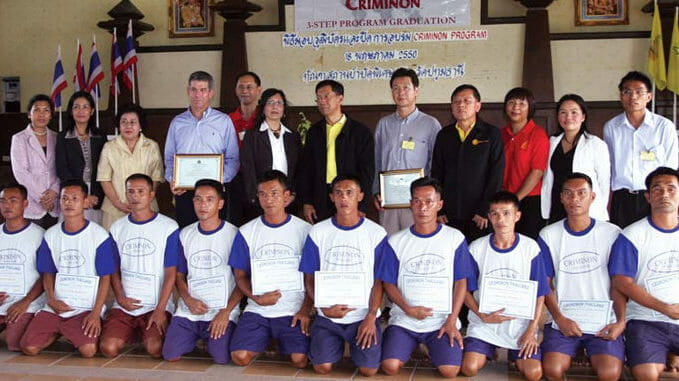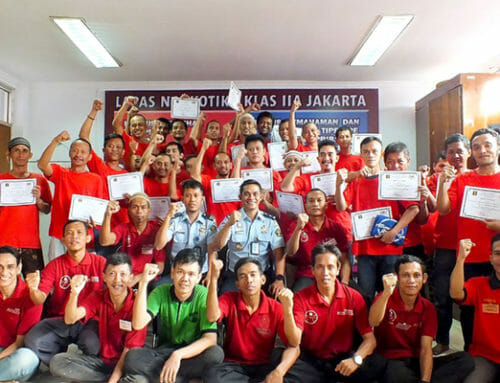Criminal Rehabilitation Success for Criminon Indonesia

The Criminon Program was introduced to Indonesia as a pilot in 2002. 1,118 inmates completed the program. Approximately one-third of these were released early from prison for good behavior due in good measure to their participation in the Criminon Program. An Indonesian prison official reported that the recidivism rate of those who completed the Criminon Program and were released was 1.25%, in other words, 98.75% did not return to prison.
Another remarkable result of the program was that all of the inmates who had initially trained and worked as Criminon Course Instructors, upon their release from prison requested to be allowed to continue working as Instructors. They explained that they wanted to help other inmates achieve the benefits they had experienced.
“I see how a government treats its people by how they treat their prisoners.”
This project started with the Indonesian corrections officials looking for a program to assist the rehabilitation of their prisoners. They were looking for one that matched the humanitarian philosophy of the now-retired former Attorney General, Dr. Hasanuddin, whose philosophy was: “I see how a government treats its people by how they treat their prisoners.”
After learning about Criminon in early 2002, senior executives of the Ministry of Justice and the National Board of Narcotics of Indonesia requested a training program for 20 staff of the Ministry of Justice, Department of Narcotics. The training program included an extensive apprenticeship in Indonesian prisons, during which the first 98 inmates completed the basic Criminon Rehabilitation Courses.
After the training concluded, the Ministry of Justice approved the implementation of the Criminon Program into six prisons. The implementation of the program was run by Indonesian government staff.
In the third phase, the inmates who had successfully completed the Criminon rehabilitation components and had done well were trained as Criminon Course Instructors, apprenticed, and started delivering the program to their fellow inmates. This proved very successful with 1,118 inmates completing the basic Criminon Program courses.
Additionally, Criminon trained 84 instructors, including 18 Ministry staff and 29 correctional staff.
Based on these results, the Ministry of Justice requested Criminon Indonesia’s cooperation in devising a roll-out plan to bring the program to all of its 365 prisons.
The first step in this plan was launched by having one of the prisons set up as a training academy for inmate instructors. The first 500 inmates completed their training and went on to implement the Criminon Program in other prisons under the direction of the Ministry.


